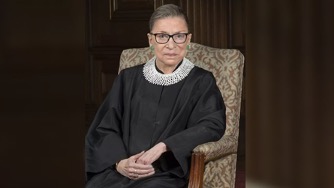Kalpana Soni-Astras, MA, ASCP, CLS
Kalpana is a Stony Brook Clinical Laboratory Scientist Alumni (class of 2000) and an American Society of Clinical Pathology (ASCP) board certified medical laboratory scientist. She received her master’s degree in Molecular, Cellular and Developmental Biology from CUNY Queens College in 2006. Kalpana has been working in pharmaceutical clinical trial research for over 20 years where she worked as a clinical scientist, scientific affairs specialist and proposal developer. Her most current role as a Senior Proposal Development Associate involves writing proposals for large clinical trial studies. Her list of clinical trial involvement is impressive, ranging from working on Daptomycin, Ritonavir for HIV and monoclonal antibody therapy to treat COVID-19. Most recently Kalpana has played an integral role in COVID-19 vaccine trials (of a recently FDA approved vaccine), as a member of the vaccine trial proposals team. In addition to her dedicated efforts in pharmaceutical clinical trials, Kalpana has been an adjunct professor at both SUNY Suffolk County Community College and Stony Brook University, where she has taught Medical Microbiology and Medical Ethics for almost 15 years. Additionally, she has taught numerous introductory clinical laboratory science courses to prospective students. Kalpana has certainly shaped history with her active role in clinical trial research. From her earlier work with protease inhibitor treatment for HIV, or Daptomycin (used to treat Methicillin-Resistant Staphylococcus aureus and Vancomycin Resistant Enterococci), to her most current work fighting a global pandemic that took the world by storm, she has affected the lives of millions of patients. Her role as a clinical laboratory scientist from working on the bench to overseeing detailed research protocols has improved patient health in immeasurable ways. Her adjunct faculty work has undoubtedly played a part in history as well. As a caring professor who has inspired and shaped the career paths of future scientists, the possibilities are limitless as to how far her influence will go. Mrs. Astras is a proud Stony Brook alumnus who remains an active and key member in the clinical laboratory science field. Her hard work, dedication and perseverance will continue to lead the way as a role model for Women’s History.
Elizabeth Blackwell
(February 3, 1821 - May 31, 1910)
Elizabeth Blackwell is the first British physician, and the first woman to receive a medical degree in the United States, and the first woman on the Medical Register of the General Medical Council. Her contributions to this day continue to be celebrated with the Elizabeth Blackwell Medal, awarded annually to a woman who has made significant contributions to the promotion of women in medicine.
Blackwell also founded the New York Infirmary for Women and Children with her sister Emily Blackwell in 1857, and began giving lectures to females on the importance of educating women. She also played a significant role during the American Civil War by organizing nurses.
Henrietta Lacks
(1920-1951)
Lab-grown human cells are invaluable to medical researchers. They allow scientists to better understand complex cells and theorize about diseases. The first “immortal” cell of its kind was created in 1951 at Johns Hopkins Hospital, its donor remaining unknown for years. But we now know that those cells belonged to Henrietta Lacks.
From southern Virginia, Henrietta was a Black tobacco farmer who was diagnosed with cervical cancer at 30. Without her knowing, her tumor was sampled and sent to scientists at Johns Hopkins. Much to the scientists’ surprise, her cells never died. Henrietta’s immortal cells were integral in developing the polio vaccine, and were used for cloning, gene mapping, and in vitro fertilization.
For decades, the donor of these cells, which were code-named HeLa, remained anonymous. In the 1970s, Henrietta’s name was revealed and the origins of HeLa, a code for the first two letters in Henrietta and Lacks, became clear. While Henrietta Lacks may no longer be with us, her contribution to science is long lasting. A book about her invaluable and forced contributions was also made into a film starring Oprah and Rose Byrne.
For more information, click here.
Sacagawea
(c. 1788 – c. 1812)
Sacagawea, the daughter of a Shoshone chief, was captured by an enemy tribe and sold to a French Canadian trapper who made her his wife around age 12. In November 1804, she was invited to join the Lewis and Clark expedition as a Shoshone interpreter. After leaving the expedition, she died at Fort Manuel in what is now Kenel, South Dakota, circa 1812.
For additional information click Sacagawea
The Honorable Ruth Bader Ginsburg
(1933 – 2020)

When Ruth Bader Ginsburg passed away in September 2020, the United States mourned the loss of one of its foremost champions of gender equality. Throughout her career as an attorney, judge and associate justice of the Supreme Court, Ginsburg’s commitment to the principle of equal justice under the law transformed the legal landscape in the U.S. — particularly for women.
Ginsburg’s work began at Harvard Law School, where she was one of only nine women in a class of 500 students, according to an obituary in the New York Times. Despite finishing top of her class when she graduated as a transfer to Columbia Law School, she struggled to find employment. Eventually, in 1963, she became a law professor at Rutgers Law School, where she turned her attention to gender discrimination. She argued six cases before the Supreme Court as a lawyer with the American Civil Liberties Union, winning five.
In 1993, President Bill Clinton nominated her to the Supreme Court, where she worked for 27 years through cancer and other illnesses. Her history of dissenting opinions on the court built her up as an icon and, as Rolling Stone wrote, earned her the moniker “the Notorious RBG.”

